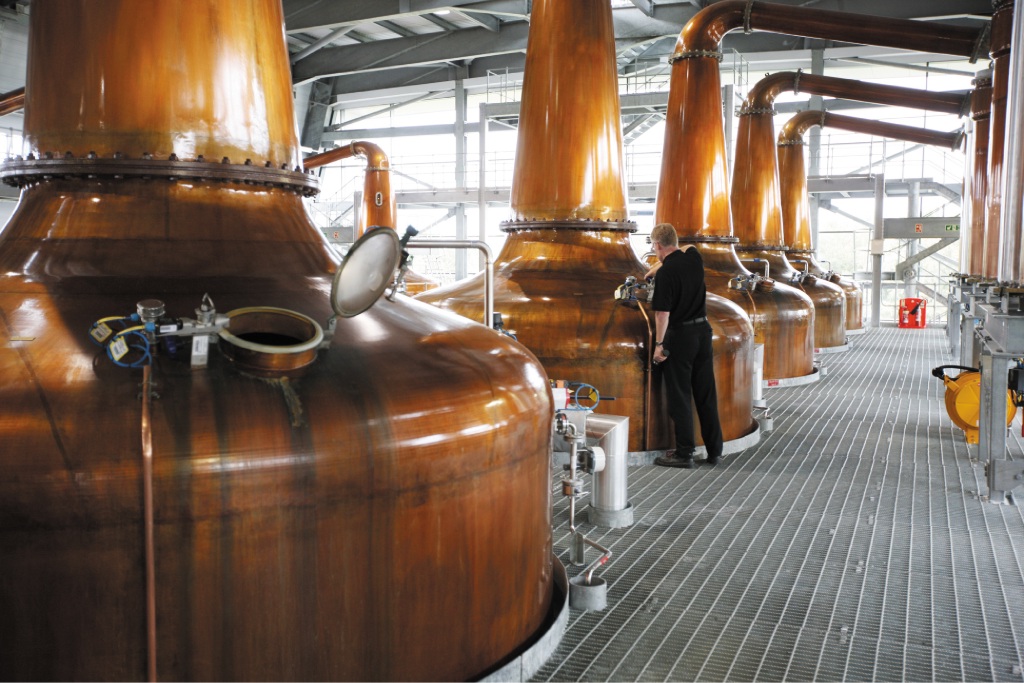Getting Started
How to invest in whisky

If you buy carefully and can manage to keep your collection away from thirsty guests, whisky can be an interesting alternative investment option.
David Robertson, as you might expect of a man who was born at a distillery, knows a fair amount about whisky. Including why the prices for investment-grade bottles just keep going up.
He says: “It’s simple economics. There’s not a lot of rare whisky, but there is a burgeoning middle class all over the world who love to treat themselves and want to have a nice life. Single malt whisky fits into that nicely.”
According to Andy Simpson, of Scotch whisky ‘valuation library’ Whisky Highland, investment grade bottles are more rare than wine or classic cars. He explains: “If you consider an 18-year-old bottle of Macallan, there are never going to be any more produced. But people are going to keep drinking them.”
Simpson has seen bottles – like the Bowmore Devil’s Cask, a limited-edition release of 6,000 bottles – grow in value from £50 at release to between £150 and £200 in just 12 months.
That being said, nobody who goes to the local off licence and buys every bottle of Bells on the shelf will end up a millionaire, nor will the person who plunks down £10,000 on a single bottle. Simpson recommends anyone interested in seriously investing in whisky follow these rules:
Buy from iconic distilleries
Bottles from iconic distilleries like Glenfiddich, Lagavulin and Laphroaig will hold their value best, says Simpson. And don’t forget about silent distilleries – those which are closed, like Port Ellen. Simpson explains: “No more of this whiskey will ever be produced; at some point existing stocks will run out and the only way collectors will be able to buy a bottle will be from another collector.”
Go for limited releases
In general, the fewer the bottles produced in a limited edition run, the better. Simpson cites the example of the Belvenie Tun 1401, released in 2010. A small run of just nine batches, the bottles that sold for £150 exclusively at the distillery are now selling on the open market for between £1600 and £1,800.
“With very limited releases, desire and demand are going to totally outstrip supply,” Simpson says.
Try before you buy
Most distilleries will let you try the product before you buy a bottle, Simpson says, and you should always take them up on the offer. First and foremost whisky is for drinking, so make sure that whatever you buy as an investment is of exemplary quality.
He says: “One person’s investment is another person’s drink. If the whisky itself isn’t excellent, actual whisky drinkers won’t want to buy it from you when it comes time to sell. You’re limiting your market.”
Don’t cross asset classes
When the Queen celebrated her diamond jubilee, Chivas released at Tribute to Honour bottle which retailed for £150,000. Simpson stayed well away.
He explains: “That would be the last thing I would put money into because it’s in an amazing, bejewelled bottle. It crosses two asset classes. It will undoubtedly be a phenomenal blended whiskey, but once that’s been drunk it becomes an expensive bottle. What do you do with it? Collectors wouldn’t be interested once the seal is broken and I doubt Chivas would refill it.”
Stay in the game
Whisky is a medium-term investment, Simpson says. He explains: “My advice is always 10 to 15 years. Short term gains are possible, but whisky should be viewed as a medium-term investment.”
Take care
Whisky is easier to store than wine, Simpson says, but if you’re treating it as investment you’ll still need to take care.
Store your bottles upright – laying them on their side will cause the alchohol in the bottle to eat through the cork, ruining the contents – and out of direct sunlight. Don’t handle it if you don’t have to, and keep it away from house parties.
Simpson, who has felt the pain of shattering a bottle from the 1950s completely by accident, says: “It’s a tangible asset, and at the end of the day there’s a risk to handling it. It’s glass when all is said and done, but if it has a good seal on it that bottle of whisky could outlast you and I.”